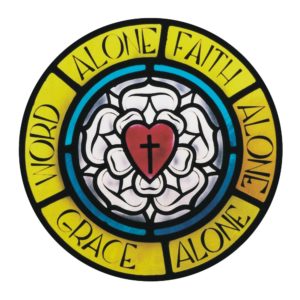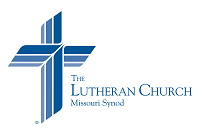About Hope
Hope Lutheran Church
God’s Work, God’s Way
Pastor’s Letter
Last month, we began to consider the four adjectives used in the Nicene Creed to describe the Church: one, holy, Christian (catholic), and apostolic. We considered the first two adjectives, noting particularly that the “oneness” and the “holiness” of the Church is often not a reality we can observe with our senses. The Church is filled with divisions and sin. And yet, it is by Christ’s work, not our own, that the Church is made “one” and “holy.” That is to say, the Church is “one” and “holy” by virtue of faith, not by virtue of sight. Now we turn to consider the final two adjectives: “Christian (catholic)” and “apostolic.”
The third adjective used by the Nicene Creed to describe the Church of Christ is Christian (catholic). You may be wondering why I have included the word “catholic” in parenthesis after each use of the adjective “Christian.” Our Lutheran Service Book provides a helpful answer to this question inside the back cover (and, indeed, in every place in which the Creed is listed). It gives this note regarding the word “Christian”: “The ancient text [of the Nicene Creed] reads: ‘catholic’, meaning the whole Church as it confesses the wholeness of Christian doctrine.” When our fathers in the faith at the Ecumenical Council of Nicaea first penned the words of the Nicene Creed, they used the word “catholic”, which means “pertaining to the whole.” When the Nicene Creed was translated into the German language (long before Luther or the Reformation), the word “catholic” was translated as “Christian” because German possessed no such word equivalent to the Greek word “catholic.” Since the name “Christian” encompasses all in the Church who believe in Christ, it was seen as a fitting substitute. Because our Lutheran Church—Missouri Synod is descendant primarily of German-speaking Christians, we have retained the German tradition of confessing the Nicene Creed with the word “Christian.”
But to speak the Creed with the word “Christian” rather than “catholic” is not to deny the catholicity of the
Church—far from it! Our Lutheran fathers in the faith always insisted that they were not starting something new. We believe the same as all orthodox Christians who came before us, as can be attested by the substantial number of citations from the church fathers in our Book of Concord. The faith of the Church does not belong to our time in history any more than it belongs to our place in the world. As our Proper Preface says, as a part of the Church catholic, we worship “with all the company of heaven”, especially those faithful saints who have gone before us.
The fourth and final adjective used by the Nicene Creed to describe the Church of Christ is the word apostolic, which is to say, the Church of Jesus Christ is founded upon the teaching of the apostles in the sacred Scriptures. Christ Himself is the Lord of the Church, but our faith rests upon the words which He has given to His apostles (and prophets), as recorded in the Holy Bible. Our faith in Christ starts and stops with the words of the apostles (New Testament) and of the prophets (Old Testament) which they affirmed. Christ is the Lord of the Church, but He has ordained to speak to His Church through the apostolic and prophetic Scriptures. Any congregation whose doctrine is not solely based on the Scriptures of the Old and New Testament cannot be said to be a part of the “one, holy, Christian (catholic), and apostolic Church.”
Or, to say it differently, it is the apostolic nature of the Church which assures her catholicity, sanctity (holiness), and unity (oneness), as Saint Paul attests: “Now, therefore, you are no longer strangers and foreigners, but fellow citizens with the saints and members of the household of God, having been built on the foundation of the apostles and prophets, Jesus Christ Himself being the chief cornerstone, in whom the whole building, being fitted together, grows into a holy temple in the Lord, in whom you also are being built together for a dwelling place of God in the Spirit” (Ephesians 2:19-22).
Thanks be to God that He makes His Christian (catholic) Church One and Holy through the apostolic witness of sacred Scripture!
In Christ, Pastor Akers

Hope Lutheran Church meets weekly at the VFW Post located at 41 Canoe Club Road in Hampden at 2:30pm each Sunday for a full Divine Service with Holy Communion followed by a Bible study.
